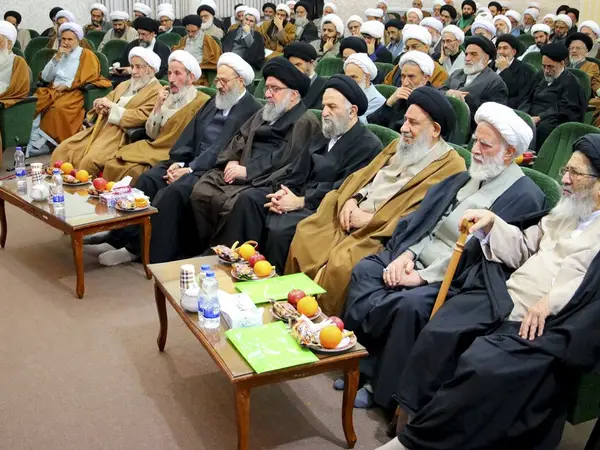High-ranking ayatollahs and some officials in Iran have been issuing dire warnings about Iran’s economic crisis and the hardship people face as prices soar.
Grand Ayatollah Lotfollah Safi Golpayegai, a respected 104-year-old senior cleric, came under fire by an ultraconservative website for warning the parliament speaker that Iran must end its international isolation.
An Iranian analyst, Mehdi Mahdavi-Azad told Iran International that as Iranians get poorer many ordinary religious people fall below the poverty line and senior clerics feel the danger of their anger.
Judiciary Chief Gholamhossein Mohseni Ejei warned on Thursday, that low employment and decline in production is likely to lead to “social abnormalities.” Without elaborating further, Ejei warned that part of Iran's political, social and cultural problems is the result of economic retrenchment. However, he did not mention US sanctions, which are the immediate cause of the crisis.
Ejei is the quintessential insider, loyal to Supreme Leader Ali Khamenei and presiding over one of the regime’s most hardliner and repressive machines.
Tehran has so far resisted reaching a quick deal over its nuclear program with the United States, which would lift the crippling sanctions. The resulting impasse has led to Iran's most serious economic crisis since the 1950s. Some economists have even warned that Iran might end up in a famine, like the one it experienced in early 20th century, if it fails to begin negotiations with the West.
Another high-ranking cleric, Expediency Council Chairman Sadegh Amoli Larijani said on Thursday that it is regrettable that many Iranians cannot afford to provide meat and fruit for their families."This is painful," conservative website Alef quoted him as saying.
Speaking about rising prices and other economic problems that have made life difficult for Iranians, Larijani said: "The pressure being exerted on the people, particularly the underprivileged strata as a result of high inflation is a major source for concern."
Many foodstuffs are scarce, and their prices are constantly rising, and we should be thinking of a quick solution for families that cannot afford to buy meat or fruit, said Larijani, while calling on the government to make the necessary decisions to bring about a breakthrough. However, he also stopped short of advising the government to solve its disputes with the West.
Earlier this week, during a meeting with Majles Speaker Mohammad Bagher Ghalibaf in Qom, Grand Ayatollah Safi Golpayegai, a former Guardian Council member got closer to the essence of the problem and demanded an end to Iran's international isolation. But possibly fearing repercussions in case his words were taken as opposition to Khamenei's policies, he did not mention the sanctions and the need for negotiations with the West.
Golpayegani told Qalibaf: "I am seriously concerned about the country's economic situation and the people's problems." The Grand Ayatollah added: "We should maintain relations with all of the countries of the world. It is not good to be sulking with many other countries. In order to restore the rights of the people and put an end to the current situation which the Iranians do not deserve, we should maintain relations with the world."
Subsequently, hardline news website Raja News, which is close to the ultraconservative party Paydari, harshly criticized Golpayegani and accused him of repeating former President Hassan Rouhani's "wrong arguments."
On Thursday, The Qom Seminary Teachers Association and Ayatollah Alavi Boroujerdi, a high ranking seminarian criticized Raja News and ruled out its argument as "rude," however, the website carried another article with the same tone repeating the same allegations.
Raja News is one of the main opponents of negotiations with the United States and other Western countries and has said in numerous articles during the past year that Iran should leave the nuclear deal (JCPOA).
The calls made by top clerics to solve economic problems could be their way of persuading Khamenei to agree to restart negotiations with the West without preconditions.
